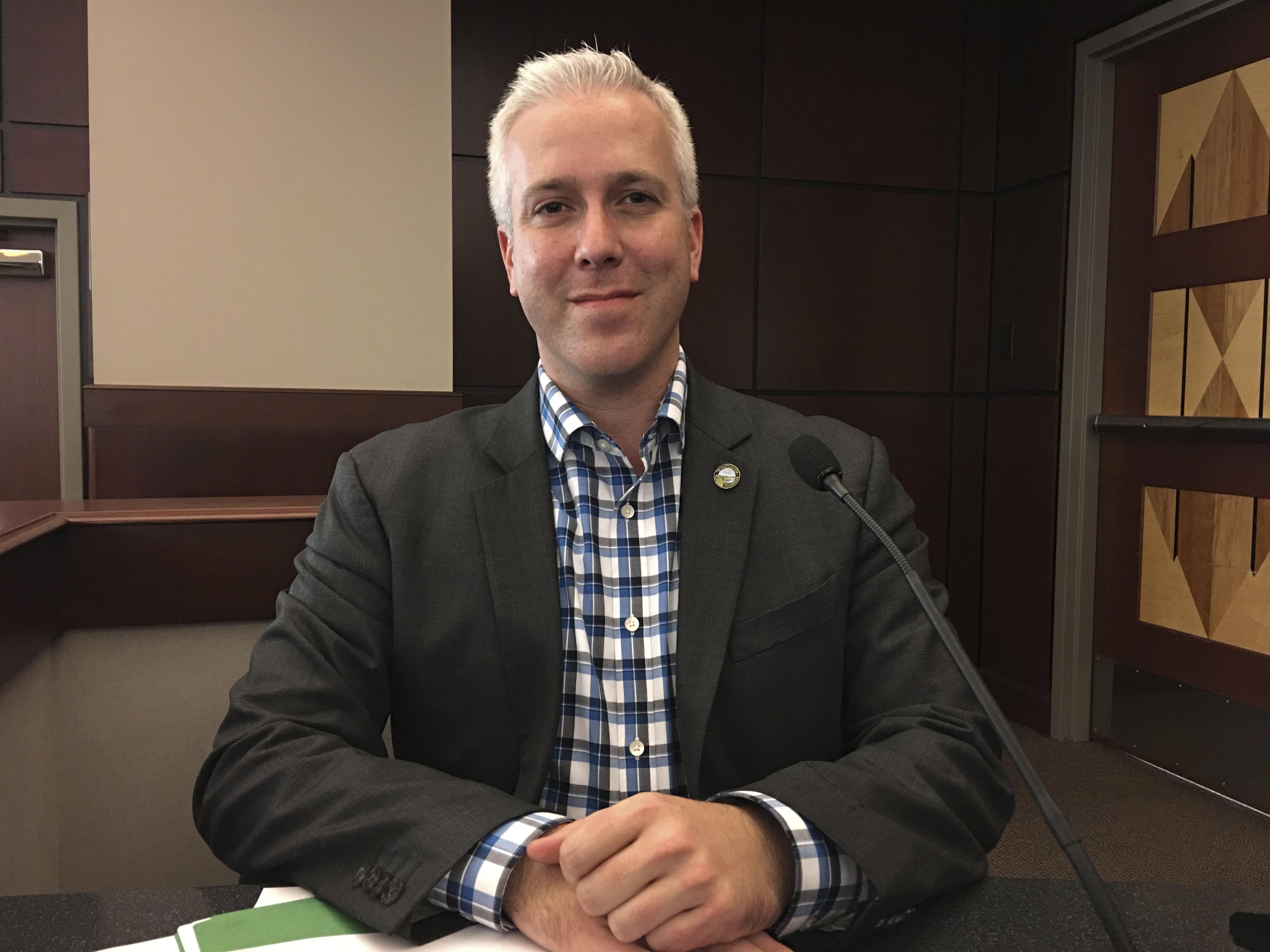State lawmakers have set the stage to grapple with the contentious issue of home-based short-term rental operations this legislative session, with a couple of competing bills already waiting for committees to review them.
And if they can't reach a solution, a pair of Chattanooga councilmen are ready to take another shot at settling the matter locally.
Property rights sit front and center in a conflict that has packed Chattanooga City Council meetings, and they churned up a lawsuit in Nashville last fall, with short-stay operators saying they should be allowed to rent their property and their opponents saying they don't want mini- hotels in the middle of their neighborhoods.
With the proliferation of people using Airbnb and other internet-based booking sites to rent rooms in their homes for short stays, lawmakers and citizens alike have called for action.
"In my district, there are a lot of people for it and a lot of people against," Sen. Bo Watson, R-Hixson, said Thursday.
Last September, Watson served on a task force to study the issue.
"The net result of the task force is we still are not quite sure what we should do," Watson said, echoing comments he made in January when he said he and his colleagues felt "philosophically conflicted" about involving themselves in local land use issues.
One motivation for state legislative action would be to prevent local regulations from completely shutting down short-term rental operations, he said.
***
The two bills generally define short-term rental units as residential dwellings such as single-family homes, apartments and condominiums which may be rented to an occupant for up to 30 continuous days. They require rental operators to pay occupancy taxes, carry $500,000 in liability insurance and comply with safety codes. Both offer some measure of local government say-so over short-term rental operations while preventing them from prohibiting them outright.
The bills do offer some nuanced differences, though.
Rep. Gerald McCormick, R-Chattanooga, said he has sponsored a bill intended to "give local governments flexibility."
McCormick's House Bill 497 - and its counterpart, Senate Bill 372 - allows the local legislative body to increase the amount of required insurance and otherwise regulate short-term stay operators.
It also lets homeowner and condominium associations go as far as prohibiting short-stay operations within their jurisdictions, a power the bill does not grant the local government.
The legislation does not allow short-term operators to advertise themselves as bed-and-breakfast businesses. The legislation considers short-stay rental units completely different from bed-and-breakfast home stays, hotels, time-share programs and vacation lodging services.
It does not consider an owner-occupied dwelling to be a short-term rental operation if the owner only rents one room for no more than three weeks in a calendar year.
Rep. Cameron Sexton, R-Crossville, said he sponsored House Bill 1020 as a means to create a baseline when it comes to regulating short-term rentals.
"We want businesses to have a level playing field," Sexton said, citing the potential of short-term rental operators having to navigate myriad local county and municipal regulations across the state.
The House bill, which mirrors Senate Bill 1086, gives local government the power to regulate short-term rentals for the purpose of protecting public health and safety if it does so in the least restrictive way and provides a clear and convincing need to do so.
It also lets local governments restrict or prohibit the use of short-term rentals for housing sexual offenders, operating a residential treatment facility, selling beer or alcohol, selling illegal drugs or operating an adult- oriented establishment.
Unlike McCormick's bill, Sexton's calls for short-term rentals to fall under the state's broad hotel category, which also includes tourist courts, cabins and motels.
The bills currently sit with the Senate Commerce and Labor Committee and the House Business and Utilities Committee, giving the Chattanooga area several voices in how the legislation may play out before - or if - it reaches the floor of the General Assembly.
Watson serves as one of the nine members of the Senate committee. Four other Chattanooga-area lawmakers sit on the 19-member House committee: Rep. JoAnne Favors, D-Chattanooga; Rep. Marc Gravitt, R-East Ridge; Rep. Patsy Hazelwood, R-Signal Mountain, and McCormick.
***
State lawmakers wrestled with short-term rentals last year, but ultimately went nowhere on the issue. If that happens again, councilmen Chris Anderson and Chip Henderson expect to have a backup plan.
"I'm doing the research now of what other cities have done to make it work where you have part of the city that favors it and part that doesn't," Anderson recently told his colleagues during a strategic planning session.
Anderson and Henderson will co-sponsor the legislation, he said.
Last October, the Chattanooga City Council voted 6-2 to torpedo a proposal to regulate short-term rentals with a certification process. Now, anyone who wants to use their home as a short-term rental must have the property designated as R3 or R4 zones, which also allow apartments and offices.
Henderson said at the time he believed the upcoming council elections played a part in the council's decision.
Contact staff writer Paul Leach at 423-757-6481 or pleach@timesfreepress.com. Follow him on Twitter @pleach_tfp.

